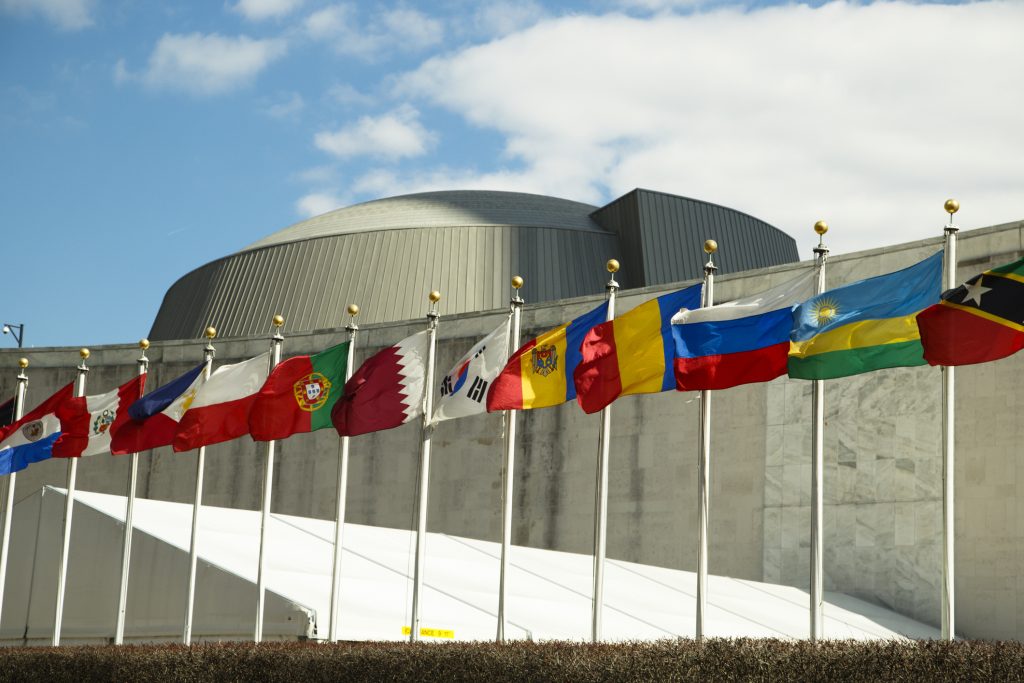
Ahead of the celebration of Portuguese Language Day on May 5, Portugal’s minister of foreign affairs, Augusto Santos Silva, said that Portugal is continuing its quest to have Portuguese made an official language of the United Nations (UN), but recognizes that it’s not likely soon.
Speaking at a press conference outlining the program of official commemorations of World Portuguese Language Day, Santos Silva said that progress had been made as Portuguese was already a working language in some UN organizations, like UNESCO. He pointed out the need to continue with the global promotion of Portuguese, considering it very important that, in addition to the work of the Camões Institute, the work of other countries’ Lusophone institutes, like the Brazil Cultural Network, and the Community of Portuguese-Language Countries’ International Institute of Portuguese Language (ILLP).
“This work allows us to codify the different varieties of the language, extend the international network of teaching, and also of cultural creation based on our language,” he said.
On the other hand, he added, it is essential to work within the UN system itself, pointing out, in this context, Portuguese has already been taught for three years at the International School of Languages of the UN, in New York, through a joint Portuguese/Brazilian program.
“The Portuguese language has greater coverage in international schools,” he said, also pointing out the importance to this effort of the network of Portuguese schools abroad, whether in teaching in Portuguese or in the training of Portuguese language teachers or the “international appreciation” of the cultures and literature made in Portuguese.
“This would add to a path that we are also clearing and of which the first great example is in London with the first bilingual Portuguese and English school,” the minister pointed out.
The date of 5 May was officially established in 2009 by the Community of Portuguese-speaking Countries (CPLP) – an intergovernmental organization that has been in official partnership with UNESCO since 2000, and which brings together peoples with the Portuguese language as one of the foundations of their specific identity – to celebrate the Portuguese language and Lusophone cultures. In 2019, the 40th session of UNESCO’s General Conference decided to proclaim 5 May of each year as “World Portuguese Language Day”.
The Portuguese language is not only one of the most widespread languages in the world, with more than 265 million speakers spread through all continents, but it is also the most widely spoken language in the southern hemisphere. Portuguese remains, today, a major language of international communication and a language with a strong geographical projection, destined to increase.
The seven Embassies of the Countries of the Community of Portuguese Speaking Countries (CPLP) with diplomatic representation in Brazil – Angola, Cape Verde, Guinea-Bissau, Equatorial Guinea, Mozambique, Portugal, and Timor-Leste, in collaboration with the CPLP Executive Secretariat, the government of the Federal District, UNESCO in Brazil and the Camões Institute – a Portuguese cultural centre in Brasilia have gathered eight texts, primarily unpublished and illustrated, in a publication for children and youth dedicated to the Brazilian capital, entitled “Sonhar Brasília”.
The book will be launched in a virtual event, on May 5, at 3 pm (Brasília time), on the UNESCO Portuguese YouTube channel, with live broadcasting through the CPLP portal: https://www.youtube.com/user/unescoPortuguese. “This world day is a fair recognition of the global relevance of the Portuguese language. I am sure that its future will continue to be enriched by the diversity and solidarity of all its voices,” said António Guterres, Secretary-General of the UN.





